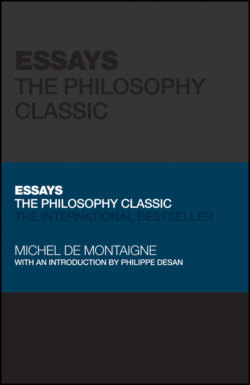Читать книгу Essays - Michel de Montaigne - Страница 21
NOTE ON THE TRANSLATION
ОглавлениеFor this edition we have used Charles Cotton's translation. Cotton (1630– 1687) was considered one of the “most charming” poets of the late seventeenth century. In 1667, he translated the Moral Philosophy of the Stoics by Guillaume Du Vair and, a few years later (1671), Horace by Corneille.
Published in 1685, Cotton's translation of the Essays is dedicated to George Savile, Marquis of Halifax. Almost a century after John Florio's first translation of the Essays in English, Cotton's language reflects the taste of his time. His prose is simple, clear, less flowery, and certainly more exact than that of Florio or other writers of the Renaissance. His translation enjoyed some popularity through the eighteenth century considering the large number of reissues (1693, 1700, 1711, 1738, 1743, 1759, 1760). Close to Montaigne's original language, this translation (which we have modernized slightly, removing some archaic words) remains very readable today. It includes some of Cotton’s remarks and references, along with those of a later editor, William Carew Hazlitt. There are also remarks from the translator of a 1724 French edition, Peter Coste. All these notes are in square brackets, as distinct from the regular brackets used by Montaigne himself.
As a complete edition of the Essays would run to over 1200 pages, most modern editions are selected. We have chosen 11 out of 57 chapters from Book I, 8 out of 37 chapters from Book II, and 7 out of 13 chapters from Book III. Although the unavoidable and best known chapters such as “To Study Philosophy Is to Learn to Die”, “On the Education of Children”, “On Friendship”, “On Cannibals”, “On Books”, “On Repentance”, “On Coaches”, “On Vanity”, and “On Experience” are present in this edition, we have also selected less known chapters which are often kept out of the Montaignian canon but nonetheless seem relevant for the twenty-first-century reader.
